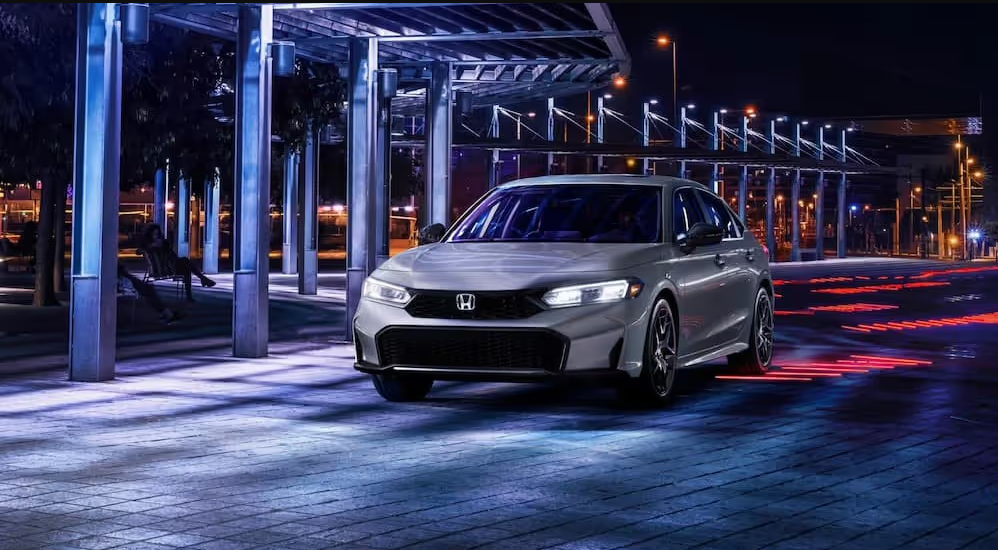Electric vs. Gasoline Cars: Which One Is Right for You?
Electric vs. Gasoline Cars: Which One Is Right for You?
With rising fuel prices, increasing environmental concerns, and growing advancements in automotive technology, many drivers are reconsidering their vehicle choices. One of the most significant decisions today’s car buyers face is choosing between an electric vehicle (EV) and a traditional gasoline-powered car.
Both vehicle types come with their own set of advantages and disadvantages. Your decision ultimately depends on your lifestyle, driving habits, budget, and priorities. In this article, we’ll break down the key differences between electric and gasoline cars to help you determine which one is right for you.
1. Purchase Price and Incentives
Gasoline Cars:
Traditionally, gasoline vehicles have a lower upfront cost compared to electric cars. They are widely available in various makes, models, and price ranges, from budget options to luxury vehicles.
Electric Cars:
While EVs tend to have higher sticker prices, this gap is narrowing as technology advances and more models hit the market. Additionally, many governments offer tax credits, rebates, and other incentives for electric vehicle purchases, which can significantly reduce the cost.
Bottom Line:
If you’re on a tight initial budget, a gasoline car may seem more appealing. However, with government incentives and falling EV prices, electric cars are becoming more affordable each year.
2. Fuel and Energy Costs
Gasoline Cars:
Fuel prices fluctuate frequently and can vary by region, making it difficult to predict long-term operating costs. On average, gasoline is more expensive per mile than electricity.
Electric Cars:
Charging an EV is generally much cheaper than filling a gas tank. According to most estimates, the cost of charging an EV is 30–50% lower than fueling a gasoline car over the same distance. Some EV owners even charge at home using solar panels for minimal cost.
Bottom Line:
EVs win in this category. Over time, the lower cost of electricity can save you hundreds — or even thousands — annually.
3. Maintenance and Reliability
Gasoline Cars:
Traditional cars have complex engines with many moving parts, requiring routine maintenance such as oil changes, transmission fluid replacements, and exhaust system repairs.
Electric Cars:
EVs have fewer moving parts and don’t require oil changes or transmission servicing. They typically need less frequent maintenance and are less prone to mechanical failure.
Bottom Line:
Electric cars are cheaper and simpler to maintain over time, making them a smart choice for drivers looking to reduce upkeep costs.
4. Range and Refueling Convenience
Gasoline Cars:
Gasoline cars can usually travel 300–500 miles on a full tank and refuel in just 5 minutes at widely available gas stations.
Electric Cars:
EV ranges vary widely, with most modern models offering between 200–350 miles per charge. High-end models like the Tesla Model S can exceed 400 miles. However, charging takes longer — from 30 minutes at a fast-charging station to 8–12 hours at home using a standard outlet.
Bottom Line:
Gasoline vehicles are more convenient for long-distance travel and refueling, especially in areas with limited charging infrastructure. EVs are ideal for urban commuting and daily driving with planned charging.
5. Environmental Impact
Gasoline Cars:
Gas-powered vehicles emit carbon dioxide and other greenhouse gases, contributing to air pollution and climate change. Even the most fuel-efficient models still produce emissions.
Electric Cars:
EVs produce zero tailpipe emissions, making them cleaner for the environment. However, the overall carbon footprint depends on how the electricity is generated in your region (coal, natural gas, renewables, etc.).
Bottom Line:
Electric cars are the more environmentally friendly option, especially when powered by renewable energy.
6. Driving Experience and Performance
Gasoline Cars:
Many drivers appreciate the feel and sound of a traditional combustion engine. High-performance gasoline models offer great acceleration, but require more maintenance.
Electric Cars:
EVs deliver instant torque and smooth acceleration. They’re extremely quiet, offering a modern, seamless driving experience. Some electric models even outperform sports cars in speed and handling.
Bottom Line:
If you enjoy a quiet, fast, and responsive ride, EVs offer an exciting and futuristic driving experience.
7. Resale Value and Market Trends
Gasoline Cars:
Gasoline vehicles still dominate the market, but their resale values can fluctuate depending on fuel prices and environmental regulations. As demand for EVs grows, traditional vehicles may depreciate faster.
Electric Cars:
Historically, EVs depreciated quickly, but that trend is changing. With improvements in battery technology and longer vehicle lifespans, resale values are stabilizing. Additionally, demand for used EVs is on the rise.
Bottom Line:
The market is shifting. While gasoline cars currently hold strong resale value, EVs are expected to gain ground rapidly.
8. Availability and Charging Infrastructure
Gasoline Cars:
You’ll find gas stations almost everywhere, making refueling easy. The variety of models available is also much broader.
Electric Cars:
Charging infrastructure is expanding but may still be limited in rural or underdeveloped areas. However, many cities and highways now offer fast-charging stations, and at-home charging is a major convenience.
Bottom Line:
Gasoline cars offer more flexibility for drivers in remote or underdeveloped areas. EVs are a better fit for urban dwellers or those with home charging access.
9. Long-Term Cost of Ownership
Gasoline Cars:
Lower upfront cost, but higher operating and maintenance expenses over time.
Electric Cars:
Higher upfront cost, but significantly lower fuel and maintenance expenses, leading to reduced total cost of ownership over several years.
Bottom Line:
When viewed over a 5–10 year span, EVs often come out ahead in terms of total savings.
10. Lifestyle Considerations
Gasoline Cars:
Great for long-distance driving, towing, and driving in areas with extreme temperatures or poor infrastructure.
Electric Cars:
Best for daily commutes, urban environments, and environmentally conscious drivers who prioritize efficiency and innovation.
Bottom Line:
Your daily habits, travel distances, and location should heavily influence your decision.
Conclusion: Which One Is Right for You?
The choice between an electric and a gasoline car isn’t one-size-fits-all. Here’s a quick recap to guide your decision:
| Factor | Best for Gasoline | Best for Electric |
|---|---|---|
| Upfront Cost | ✔️ Lower purchase price | ❌ Higher upfront cost (offset by incentives) |
| Fuel Cost | ❌ More expensive | ✔️ Cheaper over time |
| Maintenance | ❌ More frequent | ✔️ Minimal maintenance |
| Range & Refueling | ✔️ Quick refueling & long range | ❌ Longer charging times |
| Environment | ❌ High emissions | ✔️ Zero emissions |
| Performance | ✔️ Familiar engine feel | ✔️ Instant torque & quiet |
| Resale Value | ✔️ Strong market presence | ✔️ Growing demand |
| Infrastructure | ✔️ Gas stations everywhere | ❌ Charging still expanding |
If you prioritize lower long-term costs, environmental responsibility, and a modern driving experience, an electric car is likely your best choice. However, if you travel long distances frequently, live in a rural area, or are concerned about charging infrastructure, a gasoline car may still be the more practical option — for now.










